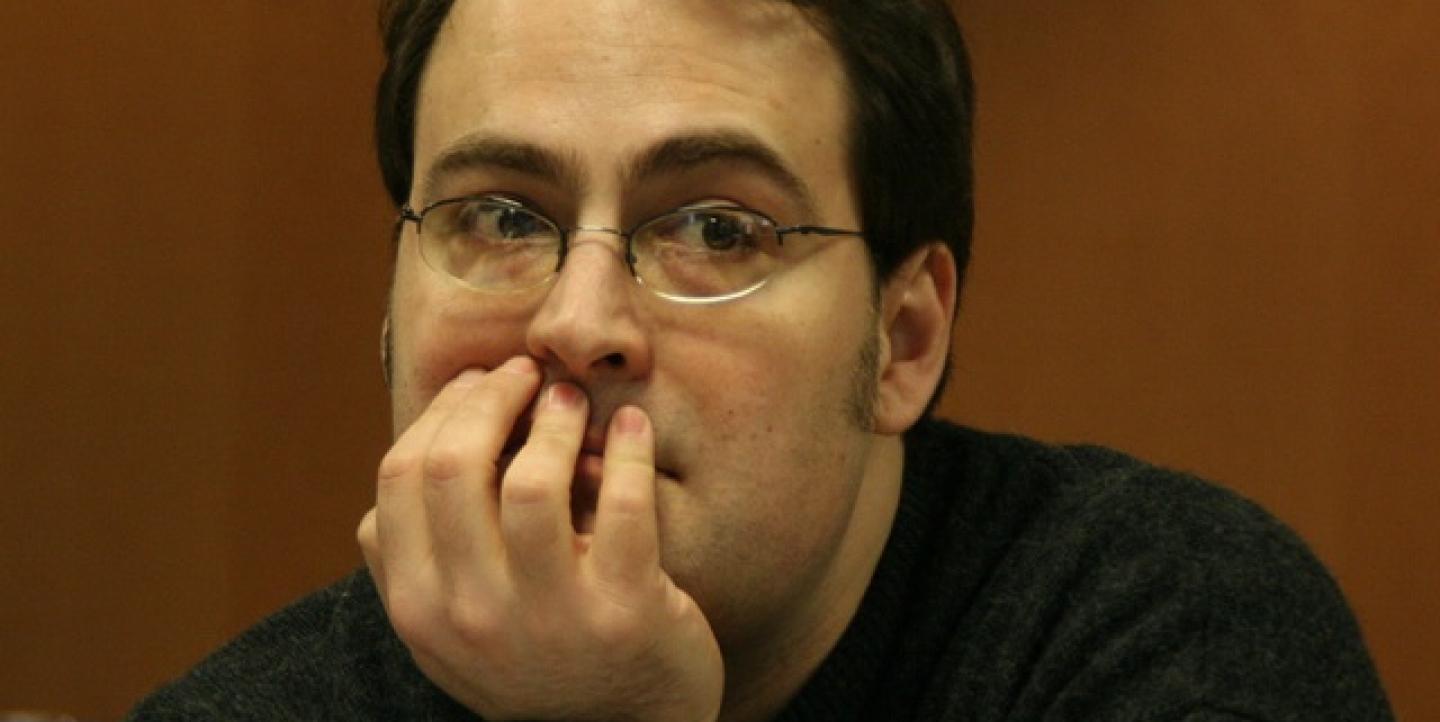As tweets about Osama bin Laden’s assassination slowed late Monday morning, NPR social media strategist Andy Carvin told a crowd of journalists, technologists and media activists at World Press Freedom Day events in Washington that journalists on Twitter are today's news anchors.
“Anchors rely on reporters, editors and researchers,” Carvin said, and “all of those jobs are being done by my Twitter followers.”
Through a prolific stream of tweets at @acarvin, the social media expert based in Washington, D.C. has become a leading voice on revolutions in the Middle East. Using messages of 140 characters or less, he's at the forefront of a movement making the case that social media and technology are redefining news.
Carvin spoke on a panel titled, “Social Media: The New News Network?” alongside Oscar Morales Guevara, creator of the Facebook group One Million Voices against FARC in Colombia; Quan Nguyen, director of RallyingforDemocracy.org in Vietnam; and Lauren Indvik, associate editor of Marketing and Media at Mashable in the United States.
“Hold up your phones,” Steve Buttry, director of community engagement at TBD.com and moderator of the session told attendees. “The screens you see on your phones are the lights of press freedom these days.”
Carvin does not speak Arabic, nor does he possess thorough knowledge of the Middle East. So he relies on a Twitter news network made up largely of experts and activists on the scene. Since December, he says he has been online for 16 or 17 hours a day, seven days a week – “curating” a steady stream of tweets from the Middle East and relaying the news to his 45,000 followers. (Last night, after following the news of Osama Bin Laden's death, he logged five hours of sleep.)
To verify information, Carvin crowdsources, or poses a question, on Twitter. His followers have helped him identify names, accents and landmarks, and verify first-hand accounts of breaking news.
He’s cautious to declare fact. Last night, when news surfaced on Twitter around 10:30 pm EST that al-Qaida leader Osama bin Laden was dead, Carvin tweeted about other news outlets’ coverage, but refused to report the death himself until an official statement was confirmed.
“My job has become a liaison with the public, sorting out fact from fiction,” Carvin said.
The social media panelists discussed the ongoing risks to journalists in repressive societies, in spite of the new media landscape.
“Technology is advancing fast on both sides – good and evil,” Guevara said.
Guevara called for a wider set of basic rules for virtual activists that would be pulled from the collective knowledge of bloggers and activists around the world.
“For example, it should be basic knowledge for people to know how to disable their geo-location data on Twitter,” he said.
Nguyen spoke of a widespread “distrust of Twitter” in Vietnam, in part because of a repressive environment. But despite the dangers, he said, “We have to continue to take risks and accept sacrifices.”
When asked about protecting sources, Carvin said he doesn’t “follow” all of his informants, but instead keeps their Twitter names in his head and messages them when necessary.
Beyond that, Carvin would not share how he protects sources on social media.
“I’ll tell you in five years,” he said.
You can read more of IJNet's ongoing coverage of World Press Freedom Day here.
The United Nations Education, Scientific, and Cultural Organization (UNESCO) organizes World Press Freedom Day commemorations to celebrate the fundamental principles of press freedom; to evaluate press freedom; to defend the media from attacks on their independence and to pay tribute to journalists who have lost their lives in the line of duty. For complete information on the 2011 World Press Freedom Day global conference in Washington DC, see www.wpfd2011.org (in English)

